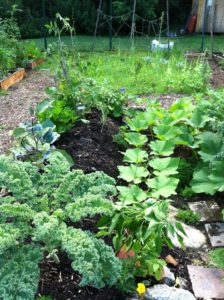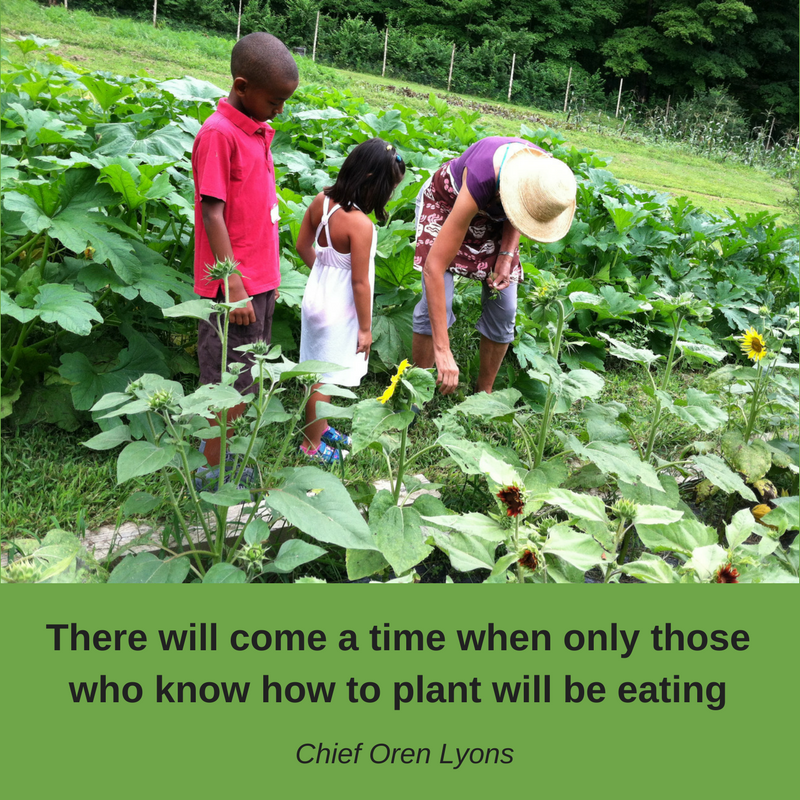What’s the purpose of a community garden?
This is the question a local town board member asked me recently.
 I gave her a quick, superficial answer.
I gave her a quick, superficial answer.
“My backyard has shade and deer so the fenced in sunny plot close to downtown enables me to grow the veggies I love.”
I immediately regretted being so simplistic. In truth, my reasons for community gardens go way deeper than sunny places to grow vegetables.
FOOD. The best food grows closest to home. There is nothing more delicious than freshly harvested salad greens. My broccoli, which didn’t spend 3 weeks getting here from California fields, is far more nutritious and delicious than supermarket broccoli. Our current food system is heavily reliant on fossil fuels and pesticides. The food I grow in my community garden is pesticide free and requires much less fossil fuels. I often drive a little more than a mile to get to my garden bed, the average meal travels over 1000 miles to your plate.
HUNGER. My county has a food insecurity rate of 21%, which is higher than the national average. Our community garden donates a significant percentage of our crops to nearby hunger initiatives. Some community gardens are completely dedicated to battling hunger. The nearby Pleasantville Community Garden donated over 15,000 pounds of fresh vegetables to the Hillside Food Outreach, A-Home and other organizations.
SKILLS. Learning how to grow food is a skill worth learning. It puts you in touch with the cycles of life, with weather and climate, with flexibility and patience. Research shows that putting your hands in the soil can help boost immunity and decrease depression. Gardening is also a gateway drug for caring more about nature, the environment and all aspects of our food system. I’ve learned from years of growing food with children that when they grow it, they eat it! Gardening causes you to fall in love with vegetables in a deep and lasting way.
PLANNING FOR CATASTROPHE Those who have been paying attention know that our current food system is unsustainable. Community gardens are as important as solar panels and rain barrels as we build resilience and prepare for the climate chaos ahead. In addition to fresh local food, community gardens provide much needed habitat for pollinators and wildlife, improve air quality, boost the mental and physical health of community residents.
COMMUNITY Last but most importantly, community gardens create community. Something that is often lacking here in suburbia and in urban areas. These projects are collaborative, not competitive. My work with community gardens has introduced me to a diverse and interesting group of people I would have never had the chance to meet. Growing food together gives people an opportunity to learn about different ways of doing things.
This is a short list of benefits that go hand in hand with community gardening. You can find an even longer list here. If you live in Westchester County, NY and would like to get involved in the growing community garden movement here, visit this Facebook page or contact me directly.


